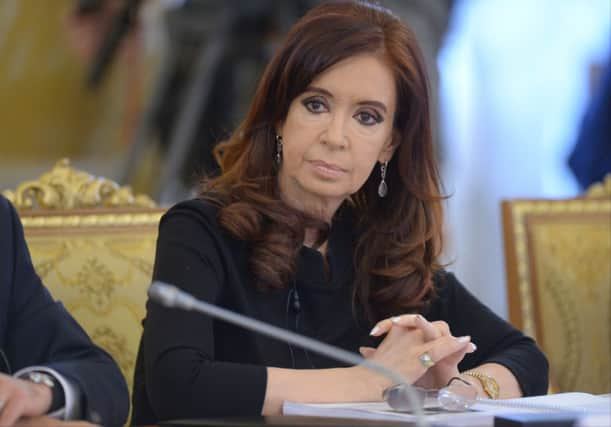Second debt default in 13 years rocks Argentina


A midnight deadline on Wednesday to reach a deal with bondholders came and went with Argentine economy minister Axel Kicillof refusing to agree terms with US hedge fund creditors that Ms Fernandez’s government calls “vultures”.
Mr Kicillof claimed the funds had refused a compromise offer in talks that ended several hours earlier.
Advertisement
Hide AdAdvertisement
Hide Ad“We’re not going to sign an agreement that jeopardises the future of all Argentines,” he said after the meeting with creditors and a mediator in New York. “Argentines can remain calm because tomorrow will just be another day and the world will keep on spinning.”
Ms Fernandez’s government remained defiant yesterday, with cabinet chief Jorge Capitanich dismissing what he called a “supposed technical default” as an “absurd farce” aimed at forcing Argentina into an unacceptable debt-restructuring plan.
Court-appointed mediator Daniel Pollack said a default could hurt bondholders who were not part of the dispute as well as the Argentine economy, which is suffering a recession, a shortage of dollars and one of the world’s highest inflation rates.
“The full consequences of default are not predictable, but they are certainly not positive,” Mr Pollack said.
An earlier US court ruling had blocked Argentina from making $539 million (£320m) in interest payments due by midnight Wednesday to other bondholders who had agreed to restructuring plans in 2005 and 2010.
The holdouts, led by NML Capital, blamed Argentina for the failure to reach a deal. In a statement, the hedge fund run by New York billionaire Paul Singer said the mediator had proposed “numerous creative solutions,” to resolve the stand-off.
“Argentina refused to seriously consider any of them, and instead chose to default,” it said.
The hedge funds refused to participate in the debt restructurings and won a US court judgment that they be paid the full value of their bonds plus interest – now estimated at roughly $1.5 billion.
Advertisement
Hide AdAdvertisement
Hide AdMr Kicillof dismissed a decision by ratings agency Standard & Poor’s to downgrade Argentina’s foreign currency credit rating to “selective default” because of the missed interest payments.
“Who believes in the ratings agencies? Who thinks they are impartial referees of the financial system?” he said.
Ms Fernandez has long refused to negotiate with the hedge fund creditors following the country’s record $100bn default in 2001. The holdouts spent more than a decade litigating for payment in full rather than agreeing to provide Argentina with debt relief.
They also sent lawyers around the globe trying to force Argentina to pay its debts and were able to get a court in Ghana to temporarily seize an Argentine naval ship. The threat of seizures forced Ms Fernandez to stop using her presidential plane and instead fly on private jets.
Restoring Argentina’s sense of pride and sovereignty after the 2001-02 economic collapse has been a central goal of Ms Fernandez and her predecessor and late husband, Nestor Kirchner.
Argentina has made efforts to return to global credit markets that have shunned it since the default.
The government paid its debt to the International Monetary Fund and agreed in May with the Paris Club of creditor nations on a plan to begin repaying $9.7bn in debts unpaid since 2001. It also agreed to a $5bn settlement with Grupo Repsol after seizing the Spanish firm’s stake in Argentina’s YPF oil company.
Analysts say a new default undermines these efforts and closes the global credit market to Argentina.